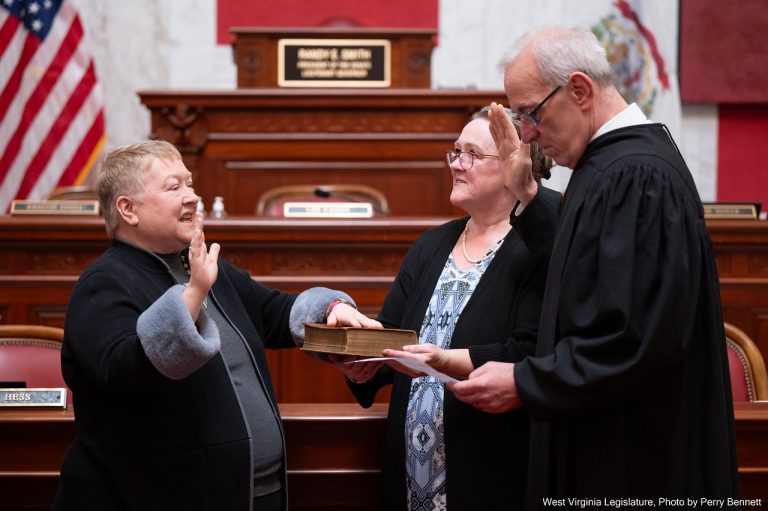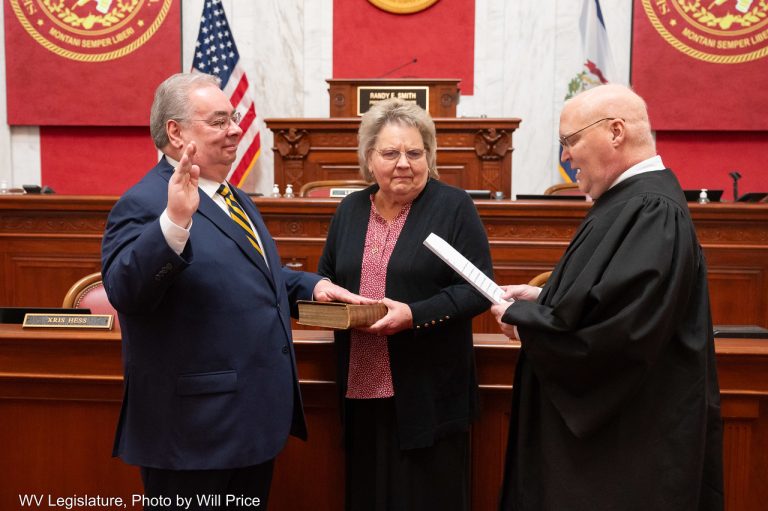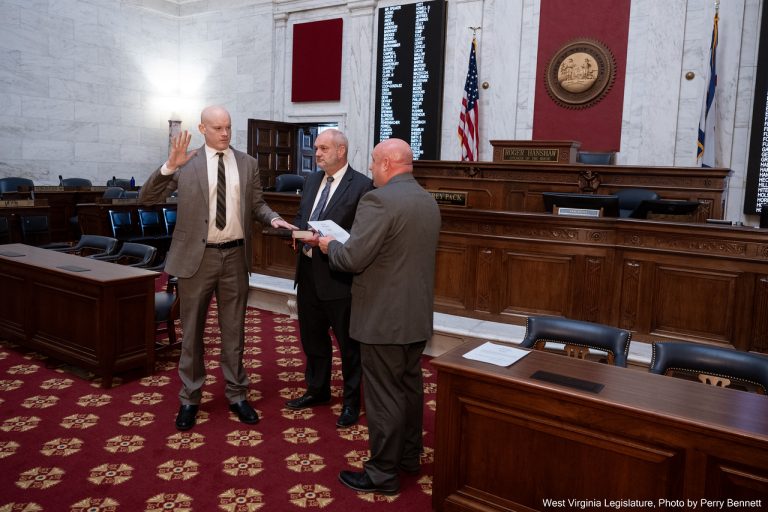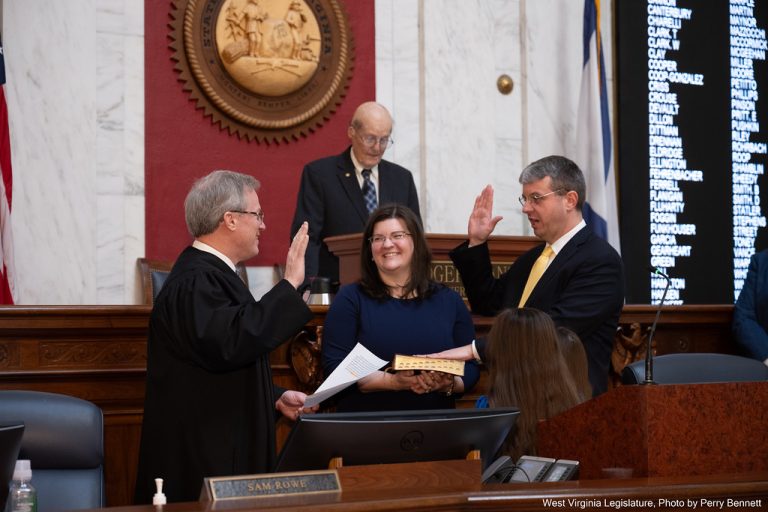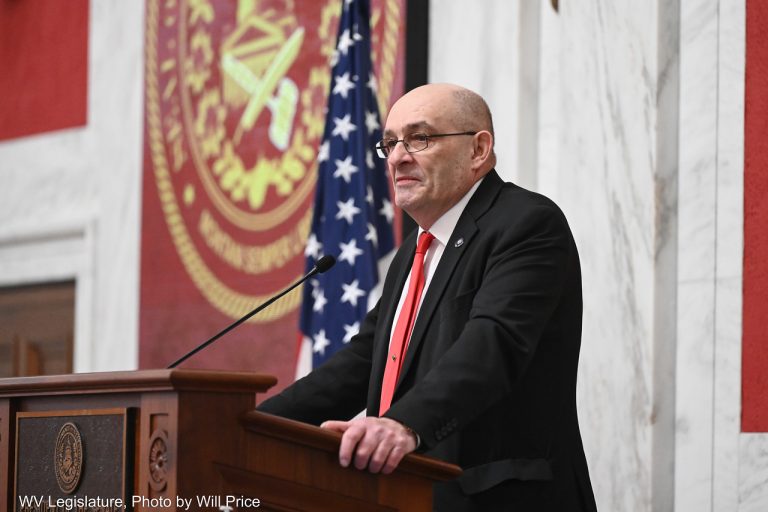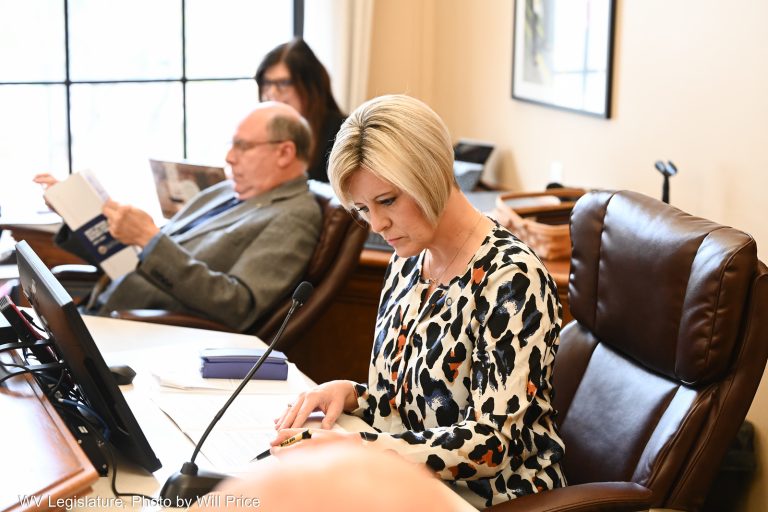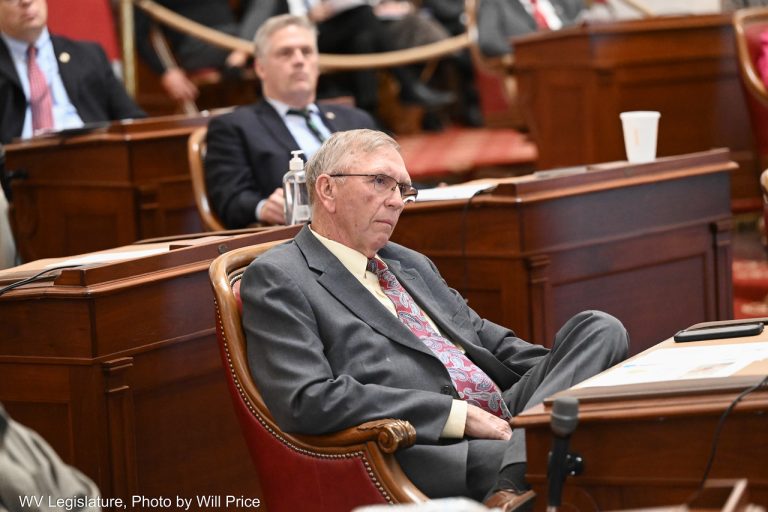Today at noon, the West Virginia House of Delegates convened for the first session of the 87th Legislature. The Secretary of State presented the election results from the 2024 elections to the Clerk. The Clerk determined a quorum of 91 of the 99 members. Justice Dan Greer administered the Oath of Office to those members. An additional delegate arrived before the Speaker’s election and was sworn in as a member, making a quorum of 92.
During the Speaker’s election, Delegates Kelly and McGeehan nominated Roger Hanshaw, R-Clay. Delegates Lewis and Fluharty nominated Delegate Sean Hornbuckle. Roger Hanshaw won and was sworn in as Speaker.
Speaker Hanshaw took a few moments to thank the members, his opponent, and his family. He asked members to reflect on the last 10 years over the next month. The Speaker spoke of the investments in people, hospitals, and higher education and the expansion of infrastructure and healthcare services. He announced that West Virginia has the highest percentage of inward migration in America.
The Speaker said the grand challenges remain across the United States, not just here. Even though there have been investments in healthcare, West Virginia still has some of the poorest health outcomes in the developed world. Even with investments in raises, the state still is not offering competitive salaries compared to other states. Despite increased funding for infrastructure, some people do not have access to much-needed infrastructure. Improvements have been made, but there is still work to do.
Speaker Hanshaw said the future is bright, and he is looking forward to working with Governor Morrissey since his agenda aligns with the Legislature to help people choose West Virginia as a place to live, work, and raise a family.
Clerk Steve Harrison retired after five terms as Clerk of the House. Speaker Hanshaw and Delegate Jeff Campbell nominated former delegate Jeffrey Pack. Pack was elected and sworn in as the Clerk.
Ed Hart was nominated as Sergeant-at-Arms by former Sergeant-at-Arms and Delegate Marshall Clay and Delegate Mike DeVault. Hart was elected and sworn in as Sergeant-at-Arms.
Robert Stewart was nominated as Doorkeeper by Delegates Ellington and Vance. He was elected and sworn in as Doorkeeper.
Three resolutions were adopted by the House today.
House Concurrent Resolution 1 raises a Joint Assembly to open and publish election returns.
House Concurrent Resolution 2 invites the Governor to deliver an address to the Legislature during a Joint Assembly.
House Concurrent Resolution 3 allows the Legislature to adjourn until February 12, 2025, at noon.
The House recessed until the Joint Assembly at 2 p.m. The Senate and the Justices of the Supreme Court of Appeals joined Delegates. The Secretary of State provided the election returns to the Speaker and President. The elected Constitutional Officers are:
- Patrick Morrisey, Governor
- Kris Warner, Secretary of State
- John “JB” McCuskey, Attorney General
- Larry Pack, Treasurer
- Mark Hunt, Auditor
- Kent Leonhardt, Commissioner of Agriculture
Governor Jim Justice provided his farewell address.
The House continued with its business after the Joint Assembly dissolved.
Senate Concurrent 1 is the joint rules of the Senate and House of Delegates.
Senate Concurrent 2 authorizes contingent expenses of the two bodies.
House Resolution 1 is the House Rules; it was referred to the Select Committee on Rules.
House Resolution 2 authorizes the printing and distribution of Acts of the Legislature, Journals of the House of Delegates, the Publication of the Legislative Manual, and the authorization of travel payments and other expenses.
House Resolution 3 authorizes the appointment of employees for the first regular session of the 87th Legislature.
House Resolution 4 declares a vacancy in the 91st delegate district of the West Virginia House of Delegates due to the failure to take the Oath of Office by the Delegate Elect as required by Article VI, Section 16 of the West Virginia Constitution.
House Resolution 4 led to a debate on whether the resolution was constitutional.
Those opposing the resolution argued that while they agreed the delegate elected to the district should not be a part of the body, the proper way to go this would be a motion to expel. The reasoning given was that the delegate-elect did not refuse to take the oath of office, which is what is in Article VI, Section 16. The opposition fears a legal battle about declaring the seat vacant could arise and that it could cause an issue for the other delegate-elects who could not be here today.
Those supporting the resolution argued that the delegate-elect cannot be here to take the oath of office. Supporters stated that while others are not here, they could be if it were not for incidental circumstances. The reasoning provided was that the delegate-elect is unable to be here for legal reasons and therefore should be disqualified from being seated.
The two sides did not agree on the definition of a member. Those opposing stated that one is a member of the House after being elected and certified. Those supporting stated that to be a member of the House one must be elected, certified, and take the oath.
House Resolution 4 was adopted, declaring the 91st district seat vacant.
The House is adjourned until noon on February 12, 2025.





